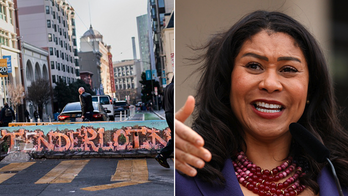A growing spiritual movement is emerging to address the emotional toll of climate change, particularly the feelings of grief, anxiety, and burnout. Known as "eco-chaplains," these spiritual leaders are trained to provide support and guidance to individuals struggling with these emotions.
In the face of the looming climate crisis, a novel spiritual movement is taking hold, offering solace and support to those overwhelmed by the weight of environmental degradation. Dubbed "eco-chaplains," these compassionate individuals are stepping into the intersection of climate, grief, and spirituality, providing a much-needed lifeline to those grappling with the emotional fallout of climate change.

Eco-Chaplains: A Spiritual Movement for Climate Grief
With less than 100 practitioners in the western world, eco-chaplaincy is a relatively recent phenomenon, a testament to the growing awareness of the profound psychological impact of climate change. Multiple organizations have sprung up to train individuals in a type of eco-therapy that draws from Buddhist, Christian, Jewish, and secular perspectives.
Driven by the recognition of the urgent need to address climate grief, anxiety, and burnout, eco-chaplains are meeting a growing demand for emotional support. In 2017, the American Psychological Association (APA) formally acknowledged the existence of climate anxiety, a chronic fear of environmental doom that affects a substantial portion of the population.

Eco-Chaplains: A Spiritual Movement for Climate Grief
The APA has found that two-thirds of Americans have experienced climate anxiety, a significant statistic that underscores the mental anguish brought on by the unprecedented environmental changes we are witnessing. The consequences of this anxiety can manifest in various ways, from heightened levels of stress and fear to feelings of helplessness and despair.
One organization at the forefront of this movement is The BTS Center, a non-profit that specializes in addressing climate change spiritually. In 2023, the center saw an eightfold increase in the number of chaplains registering for their programs, a clear indication of the growing demand for spiritual guidance on environmental issues.

Eco-Chaplains: A Spiritual Movement for Climate Grief
Eco-chaplains serve individuals from all walks of life, providing support to both older adults and young adults. Older adults often grapple with personal losses related to aging and declining health, along with a sense of regret over decades of environmental advocacy that may have fallen short.
Young adults, on the other hand, are faced with the daunting prospect of inheriting a planet ravaged by climate change, fueling fears about the future and their ability to navigate the challenges ahead. Eco-chaplains provide a safe space for these individuals to process their emotions, offer guidance, and facilitate rituals that honor the losses and sacrifices associated with climate change.
One such group that benefits from the support of an eco-chaplain is the Sustaining Climate Activists, a gathering of people in Oregon who have come together to address their fears and anxieties about climate change. Led by Rev. Liz Olson, a Buddhist hospital chaplain, the group uses breathing exercises and meditative practices to manage climate anxiety and shares their experiences and concerns in a supportive environment.
The Sustaining Climate Activists group was born out of the fears and uncertainties surrounding the election of former President Trump. Co-founder Alan Journet explained that group members sought a way to cope with the heightened sense of anxiety and fear brought on by the political climate and its implications for the environment.
As the climate crisis continues to unfold, eco-chaplains are playing an increasingly vital role in providing emotional and spiritual support to those impacted by environmental degradation. Their work is a testament to the growing recognition that the mental health consequences of climate change are real and require specialized care. It is a movement that offers hope and solace in the face of unprecedented environmental challenges, empowering individuals to navigate the emotional toll of climate change and find meaning and purpose in their response to the crisis.










